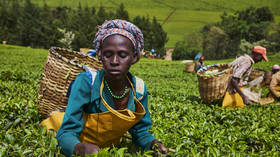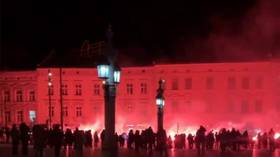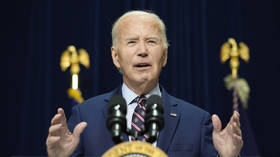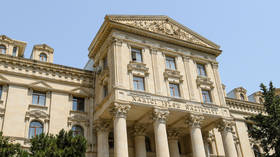Top Russian academic explains rapprochement with Africa
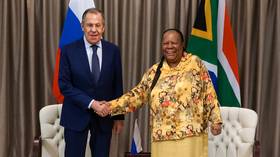
Many African countries have resisted pressure to condemn Moscow over the Ukraine conflict because they see that the West is now using the same methods of “colonial oppression” against Russia that their own continent had suffered from, Irina Abramova, director of the Institute for African Studies of the Russian Academy of Sciences, has told RT.
The conflict in Ukraine has “given a new impetus to Russia’s return to Africa. It tore away the disguises, revealing our true friends and foes,” Abramova said in an interview on Friday.
The African nations “weren’t afraid to speak up against the economic sanctions [on Moscow] and stood firm in the face of enormous pressure from the West. Despite certain inconsistencies during the voting on some of the UN’s anti-Russian resolutions, their behavior was exemplary,” she recalled.
Last March, 26 African countries out of 54 refused to support a UN resolution condemning Russia, mostly abstaining or not submitting their votes. The number of nations from the continent who didn’t back a similar document in October, had increased to 28.
One of the reasons for that was that Africa sees “that the same methods of colonial oppression once utilized against Africa are being used today against Russia,” the academic explained.
The Africans are also “grateful [to Moscow] because they remember how the Soviet Union helped them achieve both political and economic sovereignty,” Abramova said.
“The USSR built over 300 major industrial enterprises, more than 1,000 infrastructure facilities, and trained over 500,000 staff in Africa,” she said.
Russia reducing its activities on the continent in the 1990s “was a big mistake and now we’re starting to realize it,” the academic pointed out.
Foreign Minister Sergey Lavrov has made two African tours in less than a year, visiting Egypt, Ethiopia, Uganda and the Republic of the Congo in summer, and traveling to South Africa, Angola, Eswatini and Eritrea in January.
Moscow has a lot to gain from restoring relations with Africa because the continent is “a global leader in financial technology and decentralized finance, or a third of resources that the world’s green economies and defense industries require are located in Africa, or that 60% of the continent’s people are younger than 25 years of age, meaning that they are the future of the world,” Abramova pointed out.
Africa, for its part, is interested in boosting trade with Russia while dealing without middlemen, as well as getting access to Russian technologies that are essential to speed up its modernization, she said.
